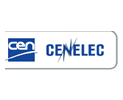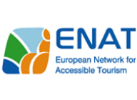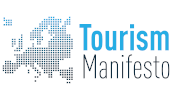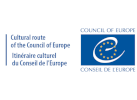FEG'S WORK FOR PROFESSIONAL TOURIST GUIDES IN EUROPE
- FEG is the Professional Tourist Guides voice in Europe (and especially the EU). It is respected and it is consulted.
- FEG provides expertise where needed to ensure that the Tourist Guide's role is understood and promoted.
- FEG knows where to go and whom to speak to about Tourist Guiding issues.
- FEG is best placed to speak for Tourist Guides on issues such as equivalence of professional qualifications, standards in tourist guiding and tourist guide training. It is well placed to establish common criteria in all areas of tourist guiding.
- FEG can achieve a common approach on professional issues. It is able help the industry and consumers greater understand what they can expect of a professional tourist guide in Europe.
- FEG can achieve a common approach on professional issues. It is able help the industry and consumers greater understand what they can expect of a professional tourist guide in Europe.
- FEG provides an opportunity for association and individual networking through its meetings, seminars and website.
IN DETAIL
1. FEG as a voice for tourist guides in Europe
FEG gives professional tourist guides a voice in Europe. For more than 35 years FEG has been able to achieve a much higher profile for tourist guides in Europe and has itself become recognised and respected as a relevant lobby for its profession. In fact, it is increasingly the case that European organisations prefer to consult with other European organisations rather than with local or national groups.
As a result, FEG representatives attend and/or sit on a number of pan-European groupings and contributes on a regular basis to discussions on all aspects of the tourism industry in Europe. FEG was a member of the Commission's Sustainable Tourism Group, which reported in March 2007 and in 2009, will be contributing to the new Social Tourism Working Party.
Then FEG was invited and participated during 2011 as a member of the Commission's steering group meetings on the European Professional Card, under the auspices of DG Internal Market and Services, moving on in the last few years to a regular collaboration with DG Grow and DG Education & Culture.
Since 2015 FEG has been a partner of the European Tourism Manifesto for Growth and Jobs, as a steering group member on the skills and qualifications sector. FEG has taken part in forums concerning the tourist guide profession, tourism, cultural heritage and professional qualifications.
FEG is also a member of Europa Nostra, CEN, CEPLIS, WTM and is in partnership with the World Federation of Tourist Guide Associations, the European Travel Commission, the European Network for Accessible Tourism, Live Private Guides app, Cultural Routes of the Council of Europe and Athina Training Centre.


2. Tourist guiding as a unique and distinct profession
Historically Tourist Guiding has developed for decades as a distinct profession within the tourism industry alongside other complimentary professions that also contribute to the visitors’ overall experience. Professional qualifications for tourist guides in European Countries have helped raise quality and standards and in a number they are needed to practice the profession.
Over the years there have been various attempts to define services in tourism. The entire industry helped the European Normalisation Body (CEN) develop a European Norm which was finally approved in 2003 (EN13809- 2003). Representatives from across tourism and across Europe took part.
FEG was an official observer and a number of Tourist Guide experts, whom FEG had identified, played an important role in deliberations about many of the final definitions. The result of this work has been widely reported. The definitions add greater clarity and transparency to a vast range of services provided - including definitions of such things as, to see' ,' a visit',' a cruise',' a guided tour' etc. There are separate definitions for Tourist Guide and Tour Manager that help to clarify the differences between these two professions. It benefits the consumer - and authorities - to know how each service in the industry fits together and to understand that the services and professions are not the same as each other. The established distinction between the two professions of Tourist Guiding and Tour Managing has been a notable historical achievement. This is all the more important in instances where this distinction is misunderstood or blurred.
3. Tourist Guide Training and Qualification - key to high standards and quality service provision
FEG, at its meeting in Prague in February 2006, finalised its own document, 'Tourist Guide Training - The Way Forward'. As a consensus of views of its Members the Document establishes common criteria for tourist guide training and identifies common subjects for modules. It additionally emphasises the importance of language skills and compliments FEG's documents on language testing. Crucially it recognises that the vocation of tourist guiding comprises the interaction of knowledge and practical skills and sets out how this can delivered in training. FEG's wealth of experience, its involvement in so many countries and its members' unique position in so often being the link between destinations and the visitor makes this a 'best practice' document of help to training providers across Europe.
At the same time FEG was formulating the Way Forward policy document CEN embarked upon the development of a European Standard on Tourist Guide Training and Qualification. This new project, instigated by Austria, has now for the first time resulted in a European Standard that sets out the minimum standard for training leading to qualification. EN15565 was approved in January 2008 and adopted by CEN signatory countries by September 2008. Never before has there been a pan-European consensus on the minimum hours needed for training, the subjects and competencies to be covered, the relation between knowledge and practical skills and the level of language required.
EN15565:2008 involved FEG and its Members, together with experts with relevant experience. The standard can, of course, be applied across Europe and is already being heralded as a major pan-European achievement. This will help in establishing the equivalence of qualifications from one state to another whilst again increase consumer awareness of the type and level of service for which they are paying.
Copies of EN15565 can be purchased direct from CEN. The equivalent National standard can be obtained from each member country's normalisation body. In 2009 FEG published a guide of the Standard.
FEG provides a certification service for area-specific tourist guide training courses. By certifying courses, FEG verifies and confirms that tourist guide training courses comply with the CEN standard EN15565:2008 Tourism Services – Requirements for the provision of professional tourist guide training and qualification programmes.












